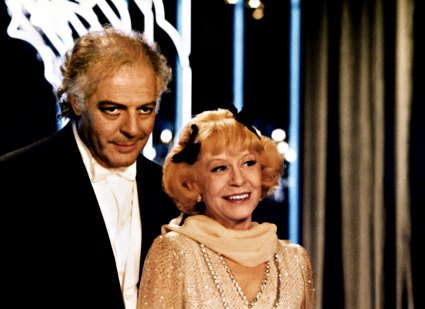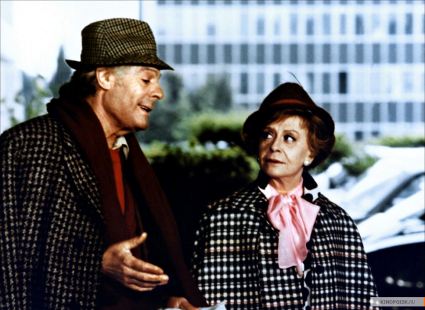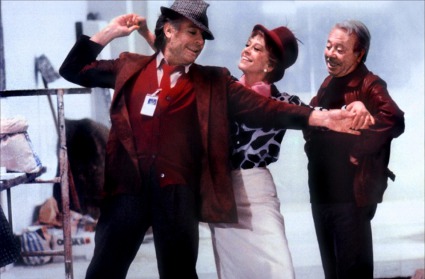Dolce Vita Maria Kornatowska – Ginger and Fred | Ginger e Fred – dir. Federico Fellini, 1986
date: 01/08/2012 time: 19:30 place: Allianz Cinema film program: special screenings artistic program: films artistic program: meetingsIT, FR, DE | 1986 | 125 min
reż|dir Federico Fellini prod|pro Alberto Grimaldi scen|wr Federico Fellini, Tonino Guerra, Tullio Pinelli zdj|ph Tonino Delli Colli, Ennio Guarnieri muz|mus Nicola Piovani mon|ed Nino Baragli, Ugo De Rossi, Ruggero Mastroianni ob|cast Giulietta Masina, Marcello Mastroianni, Franco Fabrizi, Friedrich von Ledebur, Augusto Poderosi, Martin Maria Blau dys|dis Mayflay
Amelia (Giulietta Masina) and Pippo (Marcello Mastroianni) celebrated their onstage triumphs in the ‘40s of the 20th century, performing under the pseudonyms of American stars: Ginger Rogers and Fred Astaire. They parted long ago and each followed their own path. She raised a family and led a peaceful, middle-class life. He went through a nervous breakdown after an unsuccessful relationship and did not manage to pursue his dreams.
Now, as aging dancers, they meet again to perform in a television “show.” Amelia is still in excellent shape, sleek and full of energy. Pippo is a man worn out by life, using irony to hide his abnegation. They will perform together at the twilight of their careers, but as freaks from a bygone age rather than stars loved by the public. Masina and Mastroianni meet on the set for the first time, to take part in what is Fellini’s homage to them – two artists that were an inspiration for him his entire life. Masina was the director’s wife and muse, while Mastroianni was an example of a masculinity that was very close to the creator of “La Dolce Vita.” The essence of Fellini’s creative path.
Awards
1986 David di Donatello Awards – Awards for best actor (Marcello Mastroianni), best costumes (Danilo Donati), best score (Nicola Piovani), René Clair Award for Federico Fellini
Federico Fellini (1920-1993)
Italian director and scriptwriter, one of the giants of world cinema and lead representative of film d’auteur. His first films remained under the influence of neo-realism (“La Strada” 1954), to later develop his own unique style, combining unconstrained narrative with rich, exuberant settings. His opus magnum is the metafilm “8½,” considered one of the world’s greatest films. Winner of 4 Oscars for best foreign film. In 1993, he received an Honorary Academy Award for the entirety of his work.












